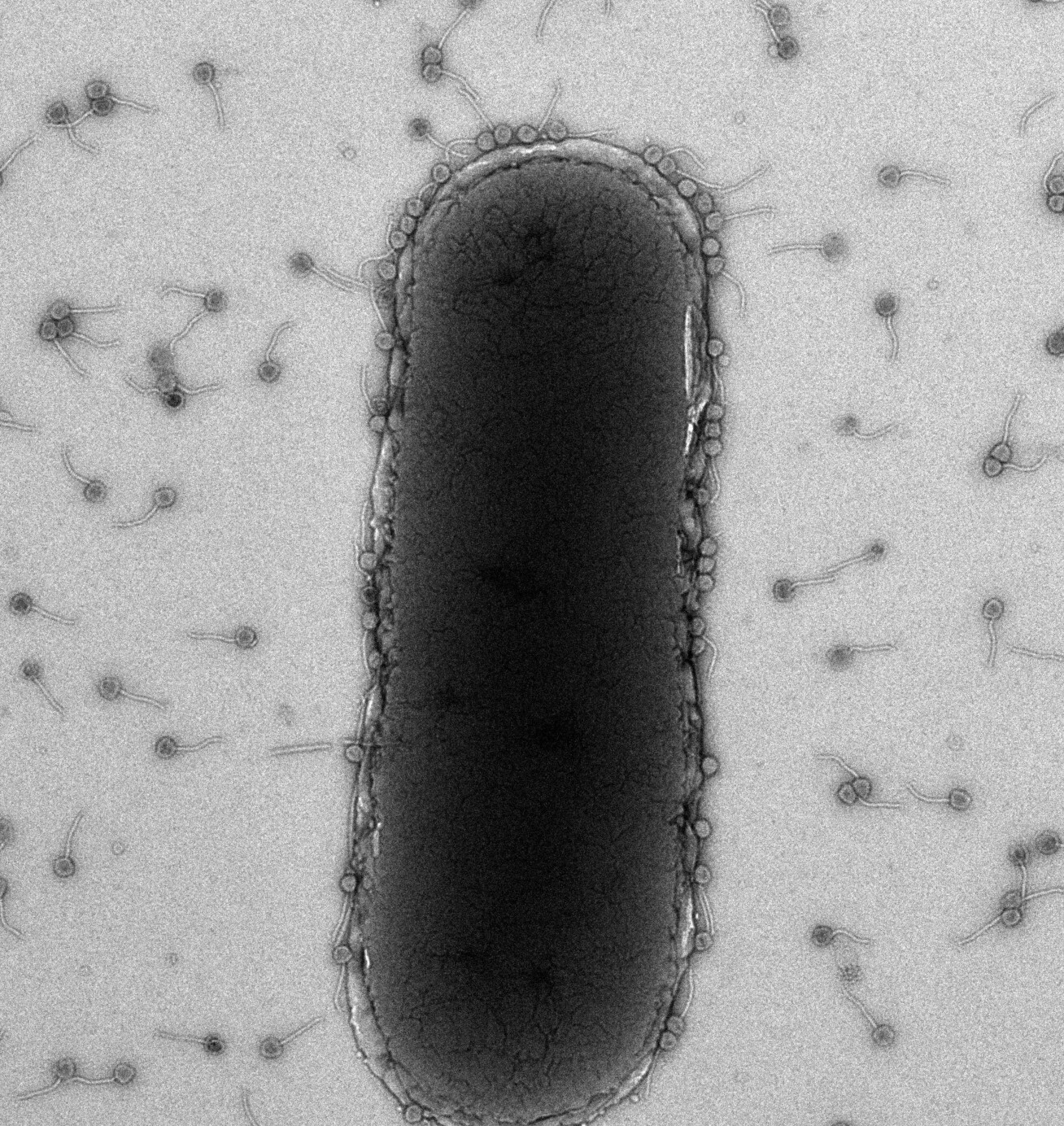New Wellcome Trust funding for Imperial Life Sciences and Medicine research
New Wellcome Trust funding for Imperial Life Sciences and Medicine research

Electron microscopy micrographs showing chimeric
cf-PICIs
Funding has been awarded to investigate the mechanisms driving bacterial evolution and explore novel strategies to combat antibiotic resistance.
A team of Imperial scientists from Life Sciences and Medicine have received approximately £2.7 million through the Wellcome Trust Discovery Award.
The research focuses on capsid-forming phage-inducible chromosomal islands (cf-PICIs), a recently discovered mechanism by which bacteria exchange DNA across species. Cf-PICIs release small, tail-less capsids that can later acquire phage tails from unrelated bacteria, creating chimeric particles capable of transferring virulence and antibiotic resistance genes.
"This recognition validates the importance of our discoveries on bacterial evolution and gives us the resources to take the next step: translating them into tangible advances against antibiotic resistance."Dr Tiago da CostaDepartment of Life Sciences
This breakthrough uncovers a previously unknown driver of bacterial evolution and presents opportunities for novel antibacterial therapies.
The programme will be led by Dr Tiago da Costa and Dr. Julie McDonald (Department of Life Sciences) and Professor José Penadés (Department of Infectious Disease) combining expertise in structural biology, molecular microbiology, infection biology, and ex vivo gut models.
Dr da Costa said: ‘I am honoured to receive the Wellcome Trust Discovery Award alongside Dr. McDonald and Prof. Penadés. This recognition validates the importance of our discoveries on bacterial evolution and gives us the resources to take the next step: translating them into tangible advances against antibiotic resistance.’

Using the award, the team will explore the molecular interactions between cf-PICIs and diverse phage tails, enabling broader host targeting.
This could lead to the engineering of chimeric cf-PICI particles capable of selectively targeting harmful bacteria or resistance genes, overcoming a major limitation of phage therapy and offering a potential new approach to restore microbiome balance.
Professor Penadés said: ‘This award will allow us to uncover fundamental principles of bacterial evolution that have remained hidden until now. By dissecting how cf-PICIs exploit and reshape phage biology, we can begin to imagine entirely new ways to intervene in bacterial infections - approaches that are precise, adaptable, and sustainable in the long term.’
Dr da Costa said: ‘By understanding how cf-PICIs move between bacterial species, we can design next-generation antibacterial strategies that go beyond conventional antibiotics, addressing a critical global health challenge.’
"This award will allow us to uncover fundamental principles of bacterial evolution that have remained hidden until now. We can begin to imagine entirely new ways to intervene in bacterial infections - approaches that are precise, adaptable, and sustainable in the long term."Professor José PenadésDepartment of Infectious Disease
Dr McDonald said: ‘This approach not only has the potential to develop new therapeutics that selectively kill harmful pathogens, but it could also allow us to develop new therapeutics that selectively kill or edit a bacterium within a complex microbiota.’
Antibiotic resistance remains one of the greatest threats to global health, responsible for millions of deaths each year. The team hopes their research will not only advance fundamental understanding of bacterial evolution but also pave the way for innovative therapeutic approaches to tackle multidrug-resistant infections.
Wellcome Discovery Awards support established researchers pursuing ambitious, long-term research programmes that aim to address major global challenges.
Article text (excluding photos or graphics) © Imperial College London.
Photos and graphics subject to third party copyright used with permission or © Imperial College London
Taken from, copyright belongs to, https://www.imperial.ac.uk/news/270013/new-wellcome-trust-funding-imperial-life/
.png)

.png)
Comments
Post a Comment